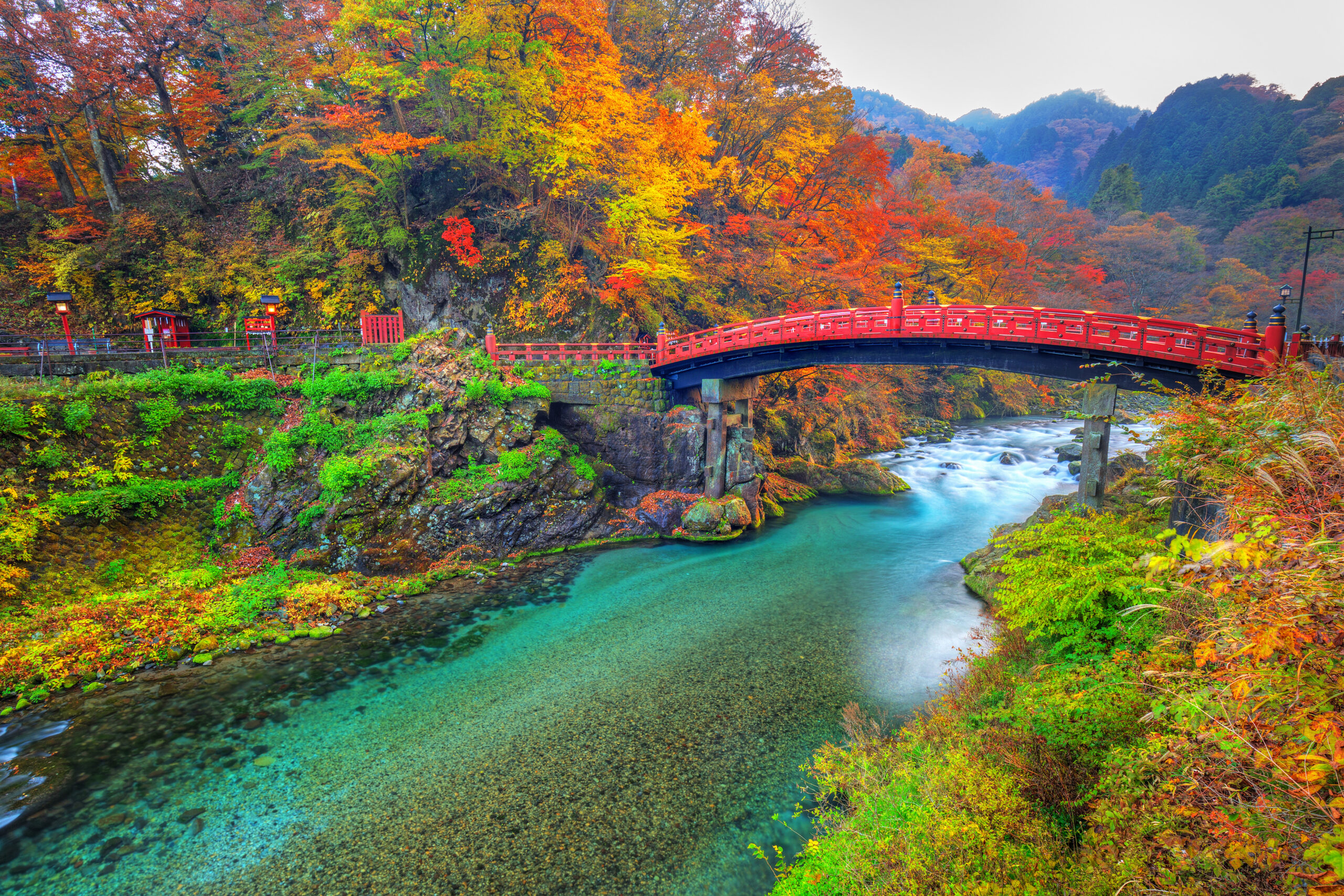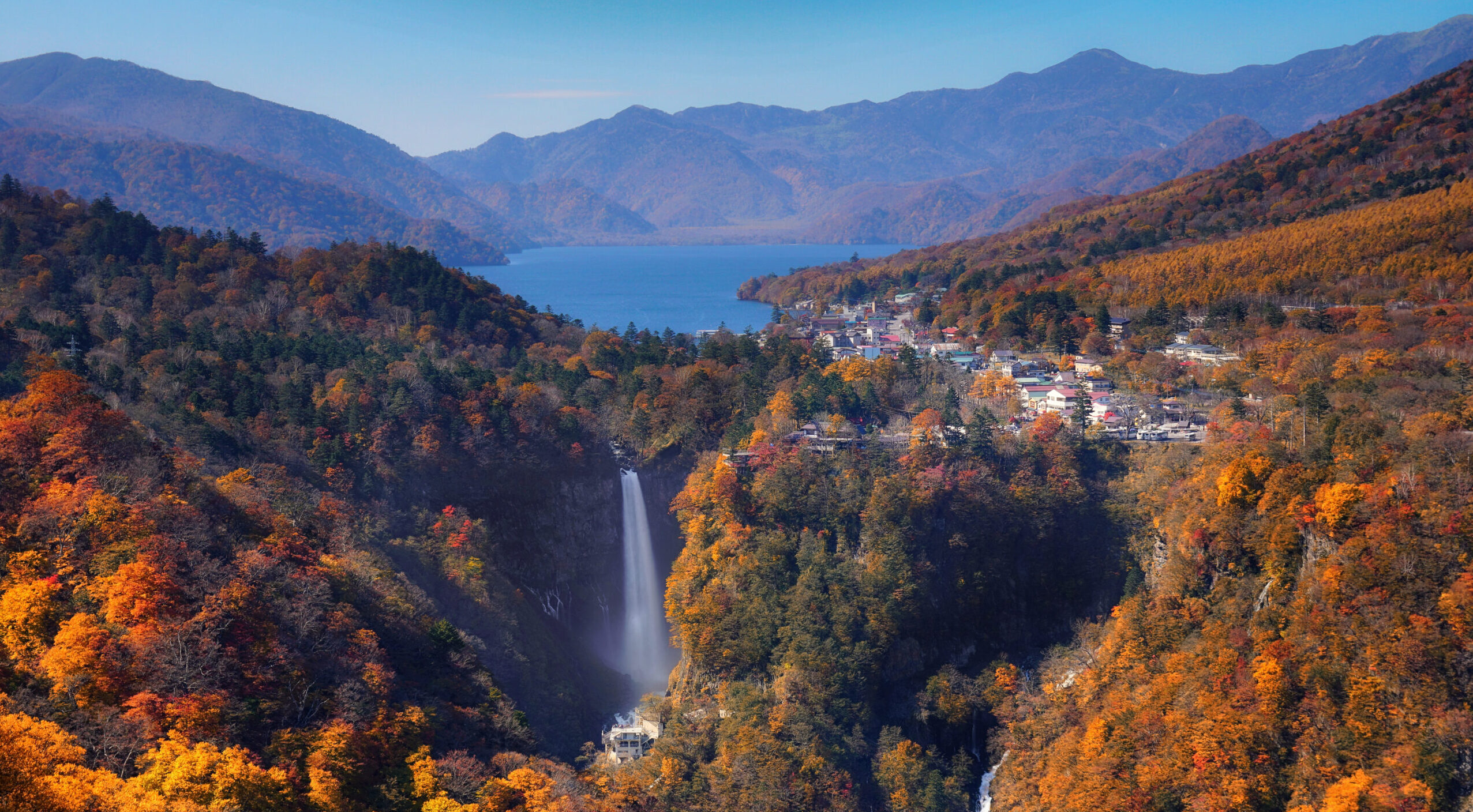As part of a new scheme, Japan’s national parks are offering facilities for remote workers to take a ‘workation’ in the wilderness. Rose Dykins reports
Each autumn, Japan’s national parks are a riot of colour, with vibrant golden and burnt orange foliage. Now, several of the nation’s parks are being adapted to welcome remote workers wanting to take a “workation” surrounded by natural beauty.
Having received support from the Japanese Environmental Ministry, prominent Japanese national parks now have designated workstations installed at their campsites and hotels, available for digital nomads to rent.
Following a successful trial run between April and July this year, the workation scheme has restarted in time for autumn 2020. The idea is to attract professionals who have been homeworking for months, offering scenic surroundings as an alternative to the four walls of their apartment.
A trend regularly covered by Globetrender, digital nomads have location-independent jobs such as TEFL. They’re able to travel the world – working from anywhere with their laptop and a decent internet connection – fulfilling their travel dreams as well as their career aspirations. And the rise of homeworking during Covid-19 has accelerated this trend, as more people than ever will be working outside of their usual office space indefinitely.
What’s more, as identified in Globetrender’s Travel In the Age of Covid-19 report – Wilderness Seeking is a key travel trend at this moment in time, as people crave wide open spaces away from crowds after being homebound for so long.
Among the Japanese parks included in the workation scheme are Setonaikai – home to the famous 97-metre-high Kegon waterfall; Nikko – which has stunning UNESO World Heritage temples and shrines; and Aso-Kuji, which is surrounded by steaming volcanoes and flowering marshland. Each designated workspace comes with high-quality internet access, with the option to enrol in nature-based activities when it’s time for a break, such as canoeing or trekking.
Each designated workspace comes with high-quality internet access, with the option to enrol in nature-based activities when it’s time for a break, such as canoeing or trekking.

“We want people to engage in remote work while relaxing in an environment away from their usual daily life,” an official at the Kyukamura Kishu Kada resort hotel at Setonaikai National Park told The Japan Times.
While the scheme will appeal to travellers from all over the world, for the time being, it will only be domestic digital nomads who take advantage of it.
Currently, Japan’s entry requirements for travellers are strict. Since October 1, certain non-Japanese arrivals from the UK who are staying for a minimum of three months have been permitted. This does not allow for entry on a short-term tourist visa, but does permit those working in medical, cultural or sports-related activities.
What’s more daily arrivals are soon expected to be capped at 1,000 people, and there is a mandatory 14-day quarantine for all arrivals (who must also test negative for Covid-19 when they land).
The FCO advice on Japan’s entry requirements for UK travellers currently says: “From 1 October, non-Japanese nationals who need to move to Japan to study, work or join family should be able to do so, subject to necessary visa requirements.
“Other entry to visit Japan on a short-term basis continues to be denied in principle for any non-Japanese nationals who have been to the UK or this list of countries in the last 14 days, other than in exceptional circumstances.”
It is believed that different types of longer-stay international travellers will be welcomed in stages as restrictions gradually relax. Hopefully in time, digital nomads who have the means and the time to negotiate Japan’s travel restrictions and quarantine – and who plan on a longer stay in the country – will be able to set up office in one of the country’s stunning national parks.
What’s coming next? Trend reports available to download HERE




